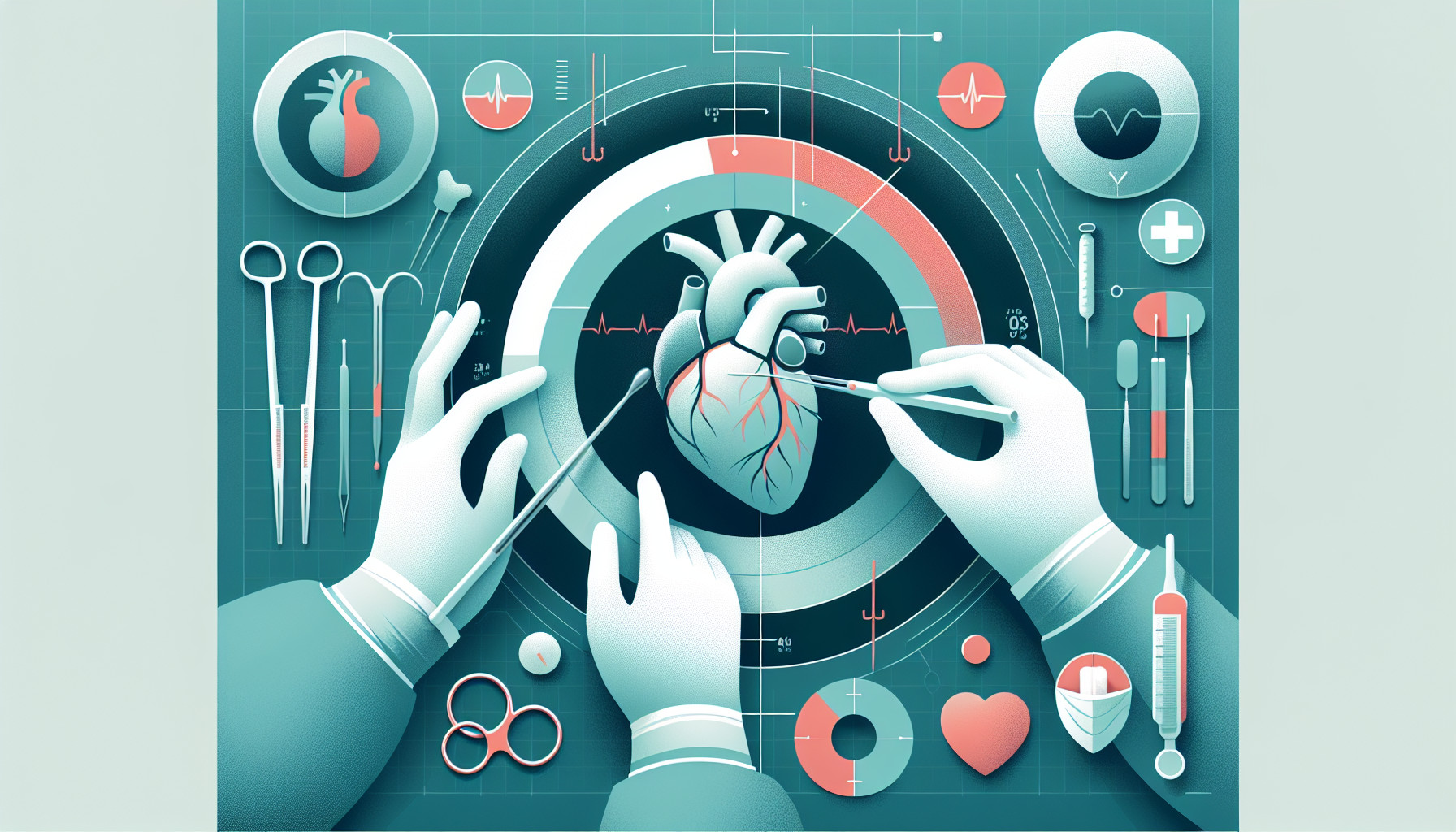Our Summary
This research paper is about improving the accuracy of detecting potential targets for a heart treatment called radio-frequency ablation (RFA). The researchers use a machine learning algorithm which analyses images of the heart tissue taken from a type of scan called delayed-enhanced magnetic resonance imaging (DE-MRI). These images help identify areas of the heart that might need treatment.
To increase the accuracy of the machine learning algorithm, the researchers introduced an additional step. They developed a patient-specific model that uses the same DE-MRI images and combines it with a mathematical model of heart activity (the Mitchell-Schaeffer electrophysiology model). This model simulates the electrical signals in the heart. The machine learning algorithm then takes features from these simulated signals to better identify potential treatment targets.
The results were promising: the updated algorithm with the additional step had an average accuracy of 97.2%, a sensitivity of 82.4%, and a 95.0% positive predictive value. The researchers also found that the algorithm performed better when it was trained on the data from the most similar patient in the database, rather than all patients.
In conclusion, this research shows that combining imaging data with a model of heart activity can improve the ability of a machine learning algorithm to identify potential targets for heart treatment. The findings are a key first step in showing that this approach can enhance the performance of image-based machine learning algorithms in predicting heart treatment targets.
FAQs
- What is the goal of the model-based feature augmentation scheme presented in the study?
- How does the use of the model-based feature augmentation scheme affect the performance of the learning algorithm for the detection of cardiac radio-frequency ablation targets?
- What is the significance of the results derived from this study on the prediction of cardiac ablation targets?
Doctor’s Tip
A helpful tip a doctor might give a patient about cardiac ablation is to follow post-procedure guidelines carefully, including getting plenty of rest, avoiding strenuous activities, and taking prescribed medications as directed. It is also important to attend all follow-up appointments and communicate any concerning symptoms to your healthcare provider.
Suitable For
Patients who are typically recommended for cardiac ablation include those with:
- Atrial fibrillation
- Atrial flutter
- Supraventricular tachycardia
- Ventricular tachycardia
- Wolff-Parkinson-White syndrome
These patients may have symptoms such as palpitations, dizziness, chest pain, or shortness of breath that are not well controlled with medication. They may also have a history of cardiac arrhythmias or have experienced episodes of sudden cardiac arrest. Additionally, patients who are not good candidates for antiarrhythmic medications or have had previous unsuccessful ablation procedures may also be recommended for cardiac ablation.
Timeline
Before cardiac ablation:
- Patient is diagnosed with a cardiac arrhythmia that does not respond to medication
- Patient undergoes various tests such as ECG, Holter monitor, and possibly electrophysiology study to locate the source of the arrhythmia
- Cardiologist determines that cardiac ablation is the best treatment option
- Patient is informed about the procedure, risks, and benefits
- Patient undergoes pre-procedure preparations such as fasting and medication adjustments
After cardiac ablation:
- Patient is taken to the electrophysiology lab for the procedure
- Cardiologist uses catheters to deliver radiofrequency energy to the area of the heart causing the arrhythmia
- Procedure can last several hours depending on the complexity of the arrhythmia
- Patient is monitored closely for a few hours post-procedure
- Patient may experience chest discomfort, fatigue, or minor complications in the days following the procedure
- Patient is prescribed medications to prevent arrhythmia recurrence
- Follow-up appointments are scheduled to monitor the success of the procedure and adjust medications as needed.
What to Ask Your Doctor
- What is cardiac ablation and how does it work?
- Am I a suitable candidate for cardiac ablation?
- What are the potential risks and complications associated with cardiac ablation?
- How successful is cardiac ablation in treating my specific condition?
- What is the recovery process like after cardiac ablation?
- How long will the effects of cardiac ablation last?
- Are there any lifestyle changes or medications I will need to take after the procedure?
- How often will I need follow-up appointments after cardiac ablation?
- What alternative treatment options are available for my condition?
- Can you explain the specific technique you will use for my cardiac ablation procedure?
Reference
Authors: Lozoya RC, Berte B, Cochet H, Jais P, Ayache N, Sermesant M. Journal: IEEE Trans Biomed Eng. 2019 Jan;66(1):30-40. doi: 10.1109/TBME.2018.2818300. Epub 2018 Mar 22. PMID: 29993400
